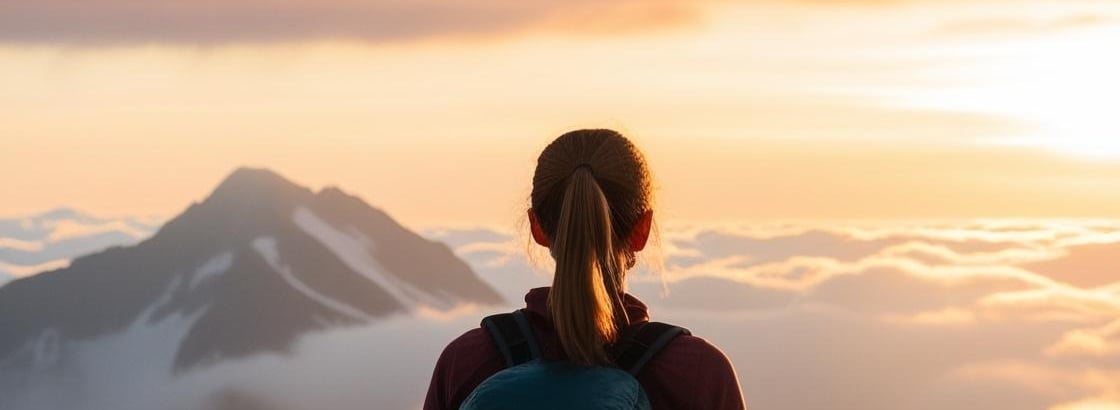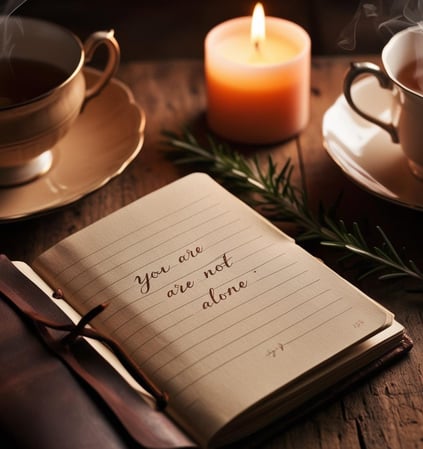Hope After Loss - Finding Light in the Darkness
Grief changes you, but it also teaches you about love, resilience, and the power of hope. In this heartfelt post, I share my journey of navigating life after loss—finding hope in small moments, honoring my late husband through acts of kindness, and learning to embrace a future filled with new dreams and connections. Whether you’re grieving, supporting someone who is, or simply seeking inspiration, this post offers a reminder that even in the darkest times, hope and love can guide you forward.
GRIEF
Jennifer Miller
11/23/20246 min read


Hope After Loss: Finding Light in the Darkness
Grief changes you in ways you never imagined, and sometimes in ways others can’t fully understand. People might even tell you that you’ve changed, as if it’s some kind of negative thing. But the truth is, you have changed—and how could you not? You can’t be the person you were before without the person you lost. It’s not about losing your identity; it’s about reshaping it around a reality you never asked for.
For me, finding hope took a long time. At first, I couldn’t see beyond the anger and the endless loop of “what ifs.” Acceptance didn’t come easily—it wasn’t a moment of sudden clarity, but a slow, painful journey. Yes, I always knew he was gone. But for a long time, I lived as if he had just gone to work, as though he might walk through the door any moment. In some strange way, it made it easier to keep living “our life” rather than face the heartbreaking reality that I had to build a new one alone.
It wasn’t until I began to confront that truth, step by step, that I could start to see glimmers of hope. Hope didn’t erase the pain or undo the loss, but it gave me a way forward—a reason to believe that life could hold meaning and joy again, even if it looked completely different from the one I’d imagined.
Finding Hope Doesn’t Mean Forgetting
There’s a lot of guilt that comes with trying to move forward after loss. It feels like you’re leaving them behind, and happy moments can bring a sharp sting of sorrow as you think about all they’re missing out on. At first, it can be hard to imagine finding joy again without that pang of guilt weighing you down. But slowly, you start to realize something important: you deserve to be happy too.
It took time for me to understand that embracing a new future didn’t mean I was forgetting Bryant. In fact, I’ve come to believe it’s one of the best ways to show my love for him. I know he wouldn’t want me to be stuck in sadness or miss out on the beauty of life—he told me so, just two days before his death. “Live a full, happy life,” he said, and those words became an anchor for me when I felt lost in grief.
Over time, I realized the best way to honor him was to live—not just for myself, but for both of us. There were so many dreams we shared, like traveling to all the national parks, dreams that felt impossible to approach without him. But life has a way of surprising you. Today, my new husband and I have begun making those trips, blending the plans we each made with our late spouses into new, shared goals.
These adventures often bring bittersweet tears. Standing in places I once imagined seeing with Bryant reminds me of the life we built together and the love we shared. But they also bring healing, connection, and joy—reminders that it’s possible to carry the memory of someone you loved into a new chapter without losing them.
Hope Grows in Small Moments
Hope doesn’t always arrive with grand gestures or life-altering revelations. Sometimes, it grows in the smallest, quietest moments—moments that remind you love doesn’t end, even when someone is gone.
Bryant was one of the kindest men I’ve ever known. He had a habit of buying coffee for random strangers, just to make their day a little brighter. On my first birthday after losing him, a stranger in line ahead of me bought my coffee. For a moment, I smiled through the tears, thinking it must be a sign from him. Maybe he couldn’t be here, so he found someone else to carry out his kindness.
Inspired by that small moment, I decided to honor him by paying it forward. Since Bryant passed on the 3rd of the month, I began buying coffee for those in line behind me every month on the 3rd. It became my way of remembering the man who spread so much kindness during his life—a small act that let me feel connected to him, even after he was gone.
Another moment of hope came a couple of years later, during my journey to regain strength after my accident. Hiking became a source of healing for me, and I started bringing along a small tin of Bryant’s ashes in my backpack. At the summit of each new mountain, I’d leave just a bit of him behind. It was my way of sharing those moments with him—honoring his love of adventure and carrying him with me into this new chapter of life.
Hope grows in these moments: a stranger’s act of kindness, a quiet connection on a mountaintop, or a memory that brings a smile instead of tears. These little sparks of light remind us that love and hope endure, even in the darkest times.
You Are Not Alone
Grief has a way of isolating you, making you feel like no one else could possibly understand the weight you’re carrying. But you’re not alone. One of the most valuable lessons I learned on this journey was the power of connection, especially through grief support groups.
These groups are a safe space where everyone is navigating the same difficult task as you—learning to live with loss. They understand in ways that those who haven’t experienced this kind of pain simply can’t. There’s an unspoken bond among people in these groups, and it was comforting for me to be surrounded by others who truly got it.
What surprised me most about joining a grief group was seeing hope in action. Everyone moves through grief on their own timeline, and being around others who had begun to find peace gave me a sense of possibility. It showed me that healing—while not linear or absolute—is possible. When you see someone who was once where you are now smiling again, it’s like a beacon of light guiding you forward.
As I started to embrace new activities, I found they opened the door to new friendships. Hiking, for instance, became more than just a way to regain strength; it became a way to reconnect with the world and meet people who shared my love of nature. These new connections helped me find joy and build a life that felt meaningful again.
The truth is, as you begin to find hope, moving forward becomes a little easier. It doesn’t mean you’re leaving your loved one behind—it means you’re carrying their memory with you into a life that continues to grow and change. And along the way, you’ll discover you’re never as alone as you might feel.
Final Thoughts
Grief is a journey no one chooses, and it’s one of the hardest paths you’ll ever walk. But along the way, I’ve learned some powerful lessons—about myself, about others, and about how we all process loss differently.
One of the most humbling realizations for me was that I wasn’t the only one grieving Bryant. The people around me—family, friends, and even acquaintances—were mourning him too. Just like I tried to hang onto “our life,” they wanted to hold onto what was. Sometimes their comments felt hurtful, and in those raw early days, I struggled with them. But over time, I realized there was no malice behind their words; they were simply grieving in their own way, just as I was.
It’s important to remember that grief affects everyone differently, and none of us handles it perfectly. I’ve also come to understand that people outside our experience can’t truly grasp what it’s like to walk this road. As much as they might care, no one knows what being a widow feels like until it’s their turn.
This is why we need to extend grace—not just to others, but to ourselves. Grief doesn’t come with a rulebook. There’s no “right” way to move forward, and no timeline for when you should feel okay again. We’re all doing the best we can, navigating an impossibly difficult journey that we never chose to take.
So, let’s remember to be kind—to those who are grieving alongside us, to those who don’t fully understand, and most importantly, to ourselves. Because as I’ve learned, hope grows where there is love, and it’s through love—for our person, for others, and for ourselves—that we find the strength to keep going.

